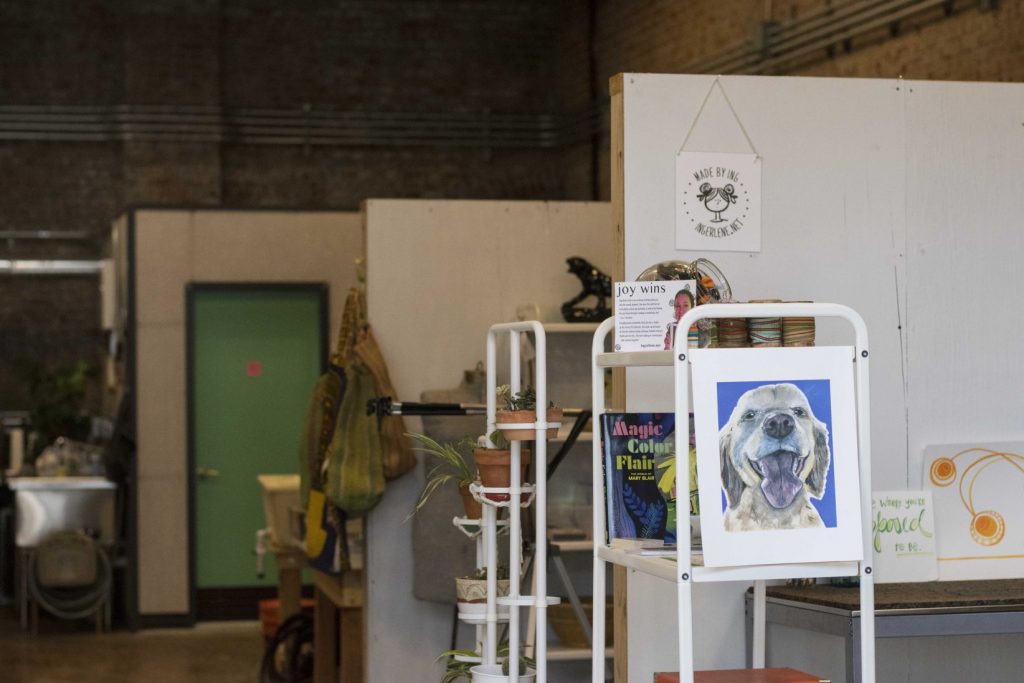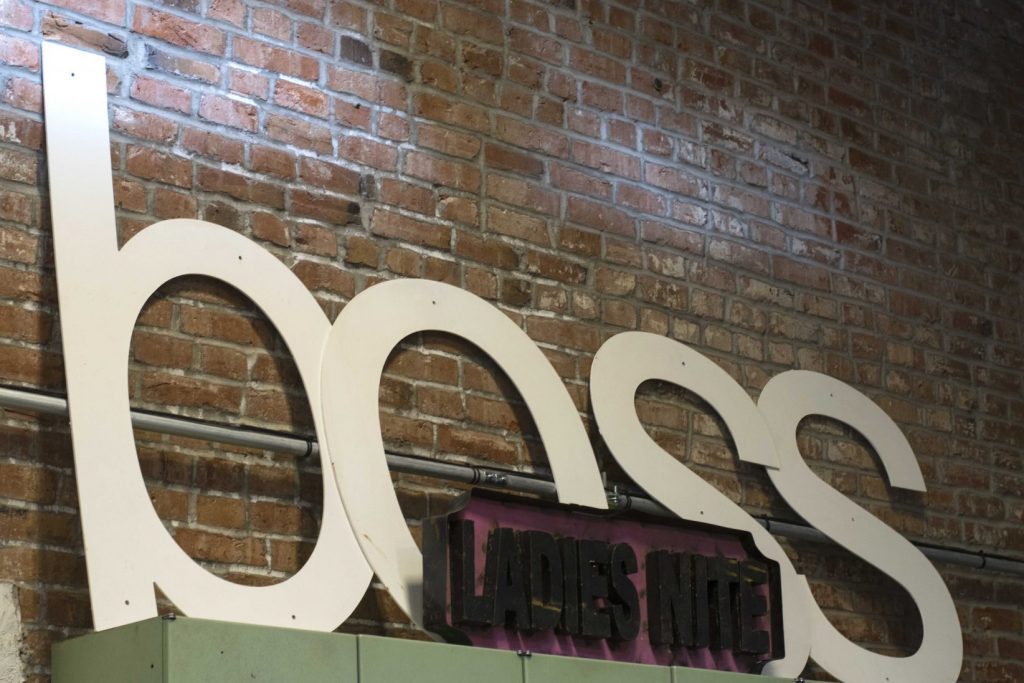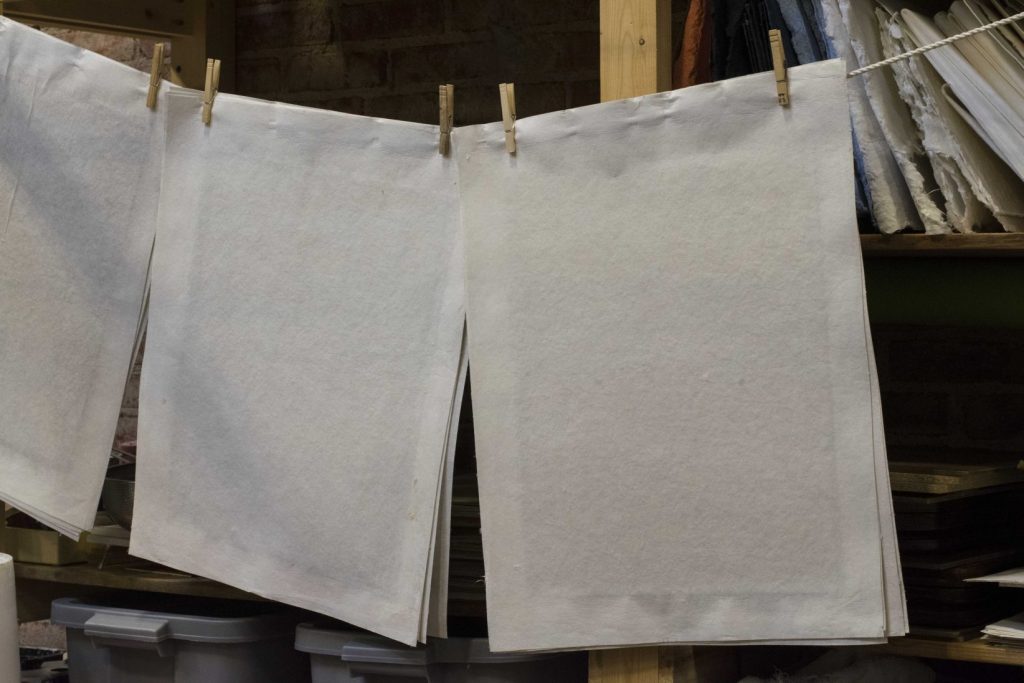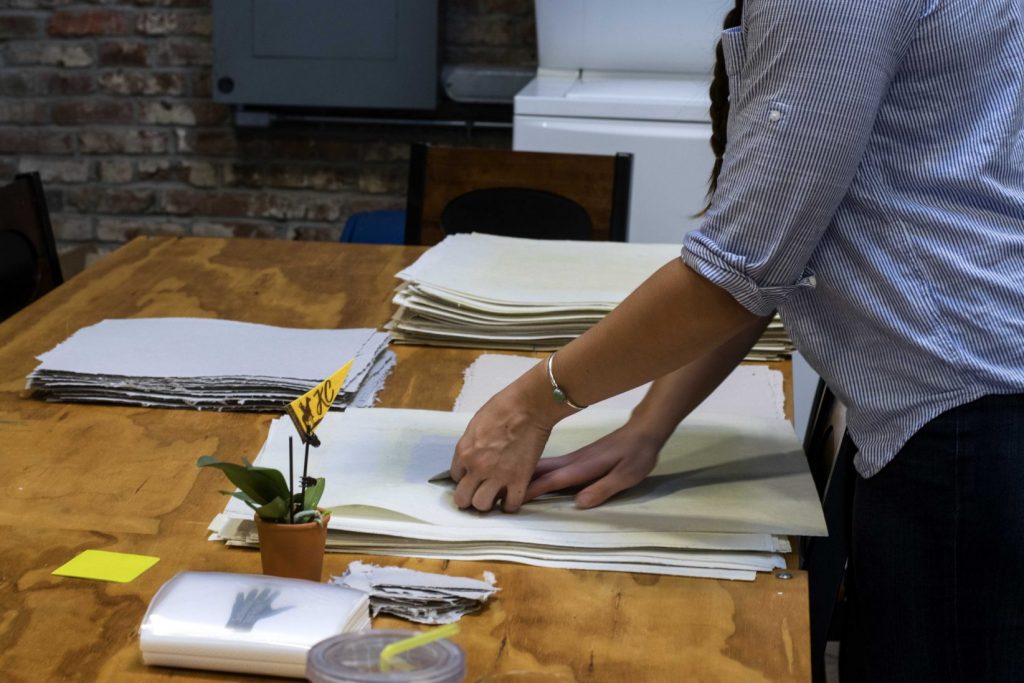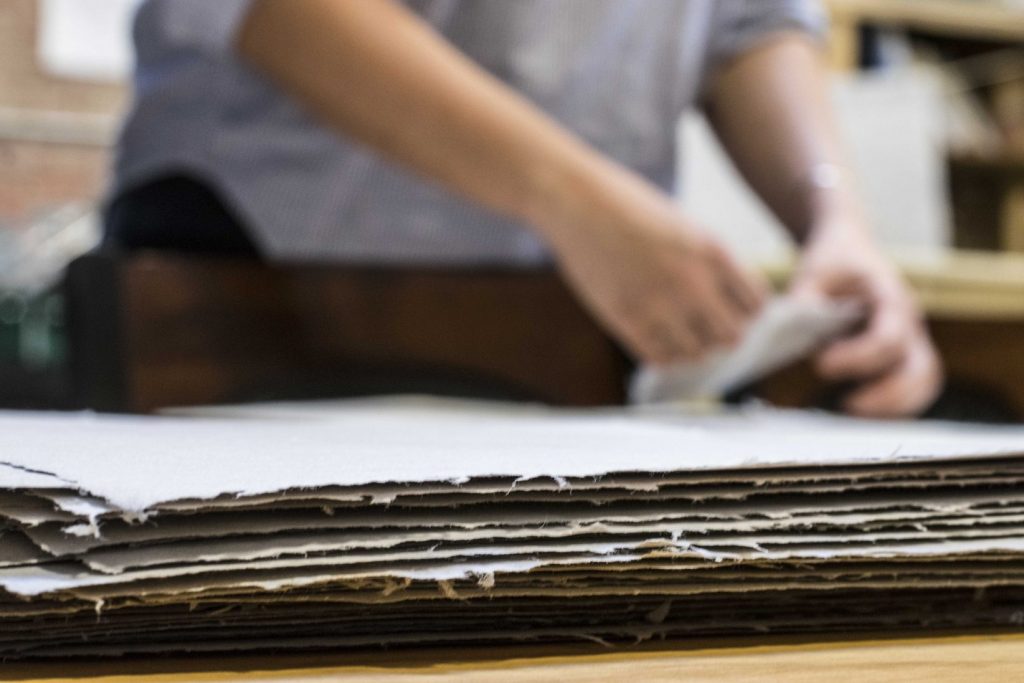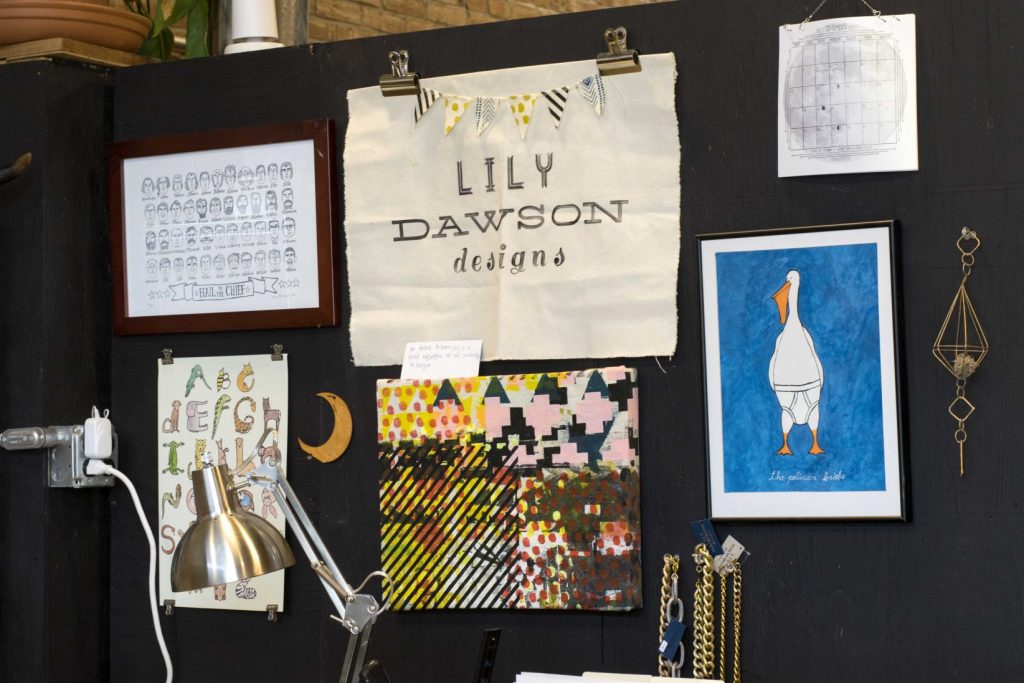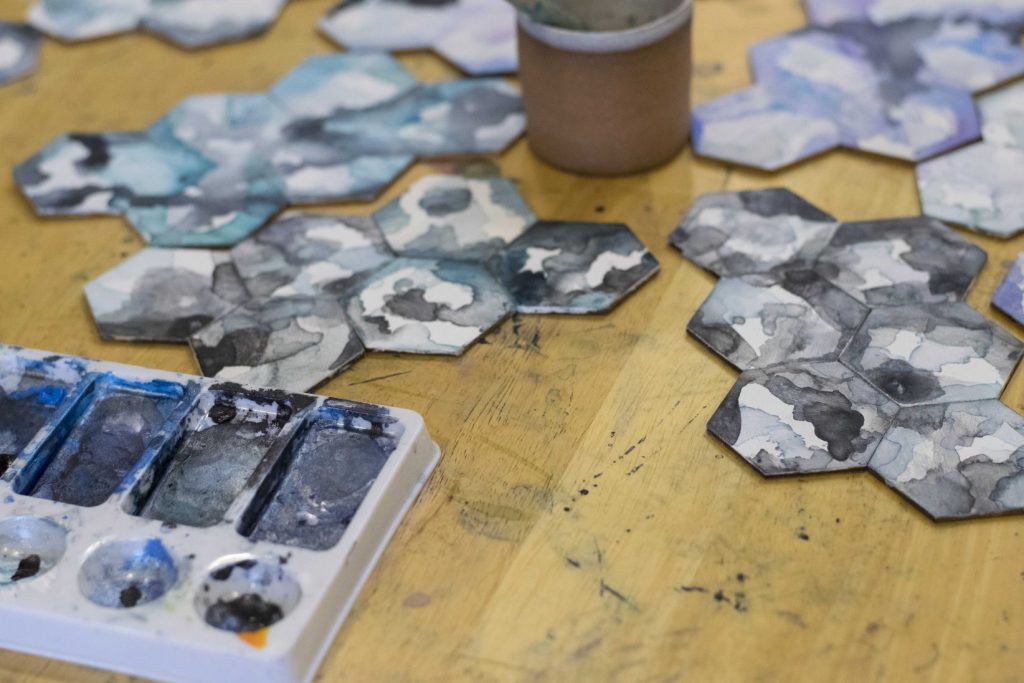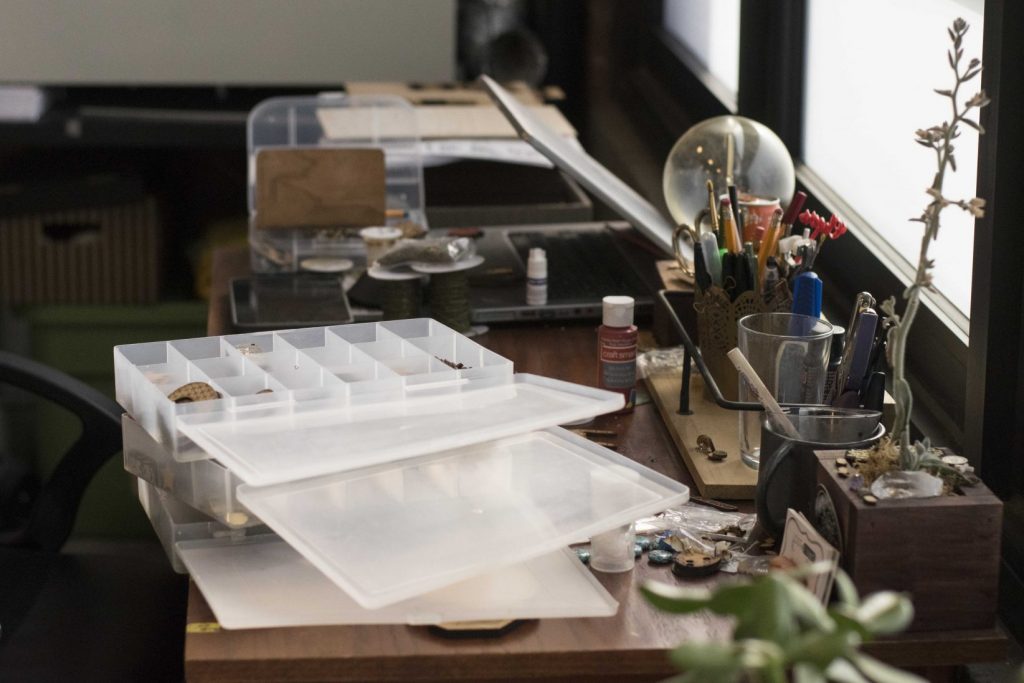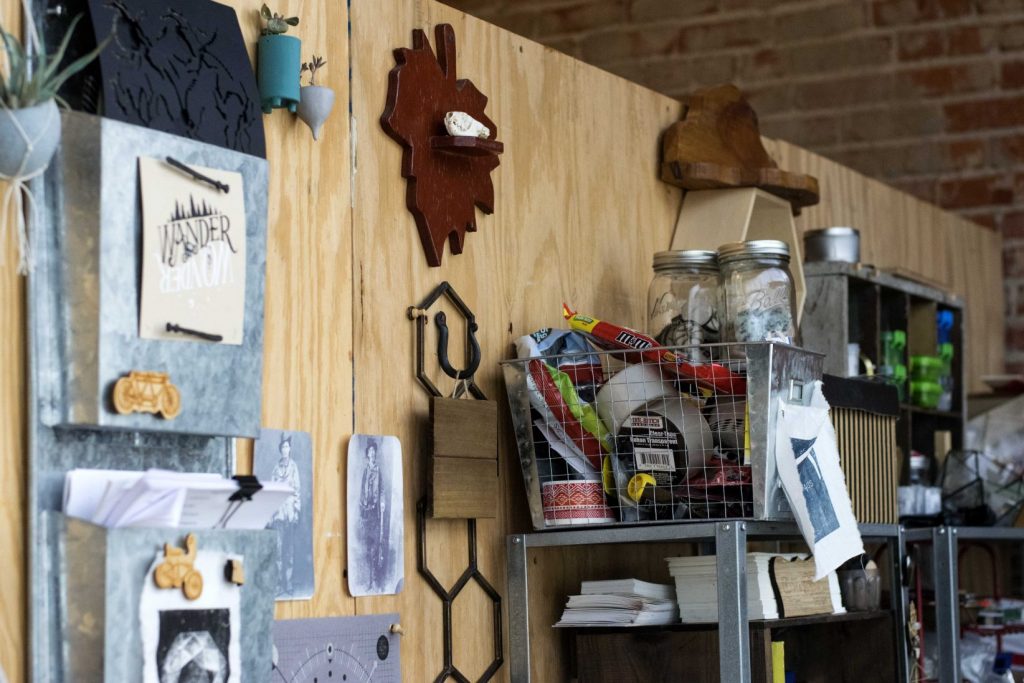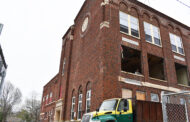For artists and makers, coworking is often more than just a preference for a non-traditional space – it can be a necessity.
When Kelsey Pike graduated from the Kansas City Art Institute in 2011, she came to the realization that she wouldn’t be able to continue her craft — papermaking — without the tools and space to do it on her own.
“This happens to a lot of artists and creatives,” she said. “It’s like, ‘Oh, great. All of the skills I’ve learned and the equipment I’ve been accustomed to using for my art practice for the last four years, I don’t have them anymore. What am I going to do now?’”
For several years, Pike kept her Hollander beater — a key paper-making tool — in her parents’ garage. As her handmade paper making business began to draw in more clients, Pike needed more room, she said.
But for a young, emerging artist, being able to afford a studio space of her own was not doable, she said.
For many creatives to continue creating, they must get, well … creative.
In August 2016, Pike co-founded Cherry Pit Collective, a communal workspace, with about a dozen other artists, makers and creatives. All are welcome to apply to work at the 1,500-square-foot Midtown location, but Pike said the collective focuses on female-identifying artists or members of marginalized communities.
Doing so gives the space a more comfortable, collaborative environment, she said.
“There there are lots of women in this city doing lots of amazing arts and things, but they frequently get overshadowed by men’s voices,” Pike said. “So, we are here to amplify the voices of women.”
A traditional coworking model hires a director to charge rent to members who then have access to workspace, meeting rooms, classes and more. But at Cherry Pit Collective, rent costs are kept lower by sharing the managing responsibilities among members.
“Here, we are a collective and we all work together,” said Pike, who serves as director. “Everybody contributes with money for rent and chores like cleaning and other tasks. Some people do design work or social media for our website. I don’t get paid for doing this, so I can’t devote all of my time to Cherry Pit Collective without help.”
Structuring the shared workspace in such a way cultivates a collaborative environment and makes the women feel like they belong, she added.
“Members feel like they own Cherry Pit Collective,” Pike said. “Everybody feels connected to everyone else here and to the space. They keep it cleaner, they give input when we have classes and events and when we make decisions.”
Members include mixed media artists, jewelry makers, hand letterers, ceramicists, illustrators and vintage clothing sellers. Mixing different disciplines allows creatives to learn from one another, Pike said.
Cherry Pit Collective also encourages members to teach classes in the space. Most recently, the collective taught a five-week Etsy Incubator course.
“I think it’s really good for artists to teach,” Pike said. “Because when you teach something, you learn it in a different way yourself. I want to encourage people here to teach the things that they’re skilled in so that we can all learn it and invite in the wider public. It helps everybody.”
A community-first, women-focused space is needed in Kansas City, Pike said. She is thankful that Cherry Pit Collective has been able to provide that to its members. As the one-year-old space continues to grow, Pike expects its schedule of art classes to become more robust.
“Because everybody has a skill to share,” Pike said. “The art and maker scene are blowing up in Kansas City. There are lots of opportunities, with craft fairs every weekend and art galleries opening every day. We’re happy to be a part of it.”
For photos from the space, see below.





